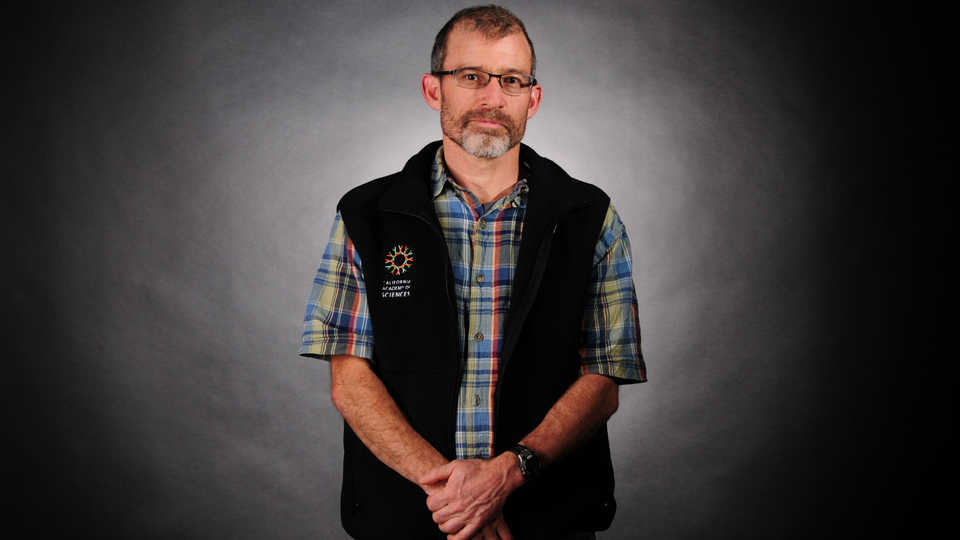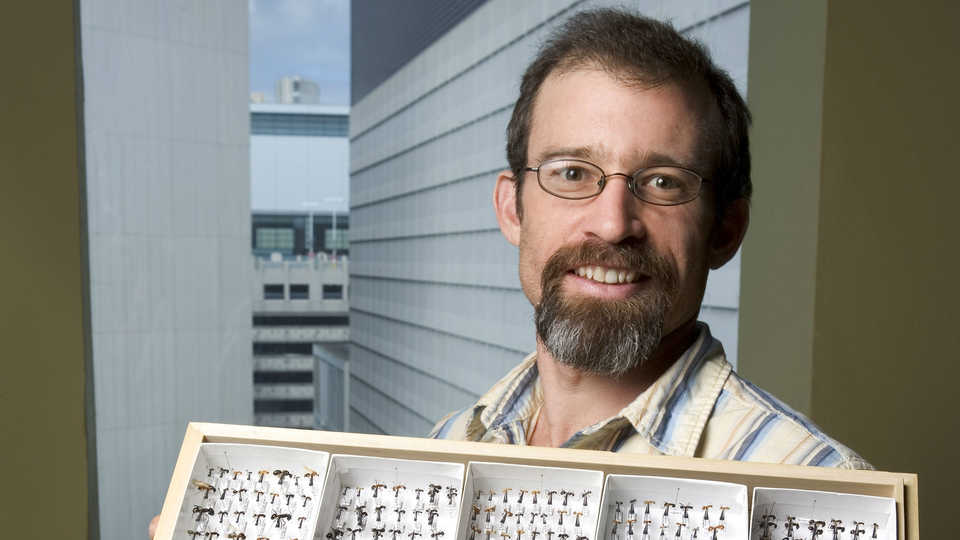SAN FRANCISCO (December 8, 2015) —Dr. Brian Fisher, curator of entomology at the California Academy of Sciences, has been awarded a Fulbright Scholar grant to pursue critical, climate-focused research on ants in northern Mozambique. Support from the Fulbright Scholar Program will allow Fisher to extend his prolific exploration of African ants to Mozambique’s little-known mountain and coastal forests, shedding light on regional arthropod diversity and generating data to inform conservation planning.
“For ten years I’ve dreamed of going to Mozambique to explore the isolated inselbergs and lowland forests,” says Fisher. “Because Mozambique was plagued by conflict and civil war from 1960 through the mid-1990’s, very little is known about the region’s ants and the fascinating natural histories they share with other African species. I’m grateful to the Fulbright Scholar Program for prioritizing research projects in our planet’s most threatened regions.”
Beyond capacity-building teaching workshops for local students and faculty, Fisher’s work will provide Mozambican conservation partners with a wealth of new biodiversity data and monitoring aids (such as online identification tools and distribution maps). Fisher departs for Mozambique in early January 2016, and plans to dedicate nine months to this large-scale project. Among several different field sites, his work will target the lowland coastal forests of Parque Nacional das Quirimbas and three mountain forests, encompassing the widest variety of habitats in the largest area of the region’s dwindling natural forests.
"Brian Fisher’s Fulbright research award in Mozambique is a win-win for people and ants alike,” says Dr. Meg Lowman, the Academy’s Chief of Science and Sustainability. “The urgency in this month’s UN climate talks in Paris reminds us that Earth faces an uncertain climate future and imminent habitat threats. Brian’s important work on the health of tropical forest biodiversity and conservation comes at a critical moment for African wildlife and little-known ecosystems worldwide.”
Often found hip-deep in Madagascar mud, Brian Fisher has devoted his life to the study and conservation of ants and biodiversity. His research sends him to the last remote rainforests and deserts of Madagascar and Africa. Although Fisher’s subjects—ants—may be small in stature, they have a huge impact on their ecosystems. By documenting the species diversity and distribution of this “invisible majority,” Fisher is helping to establish conservation priorities for Madagascar, identifying areas that should be set aside to protect the highest number of species. He will continue this work in northern Mozambique in 2016.
Fisher has also been exploring novel ways to streamline the process of capturing data and digitizing information and images about the natural world. His AntWeb database is a definitive resource on the biodiversity of ants globally. Fisher has also been instrumental in building scientific capacity in the developing world, training many Malagasy scientists both at the Academy and at the Academy’s biodiversity facility in Antananarivo, Madagascar. Fisher will apply this outreach model to his 2016 research stay in Mozambique through close engagement with local science students and faculty as well as an in-depth workshop on ant taxonomy in Gorongosa National Park next summer.
“Consider that the collective weight of all the ants in the world is equal to the weight of all the world's humans,” says Fisher, who has dedicated his life to researching and protecting the small animals that support all terrestrial communities. “It's a big subject with a big impact. That alone makes ants worthy of scientific study.”

